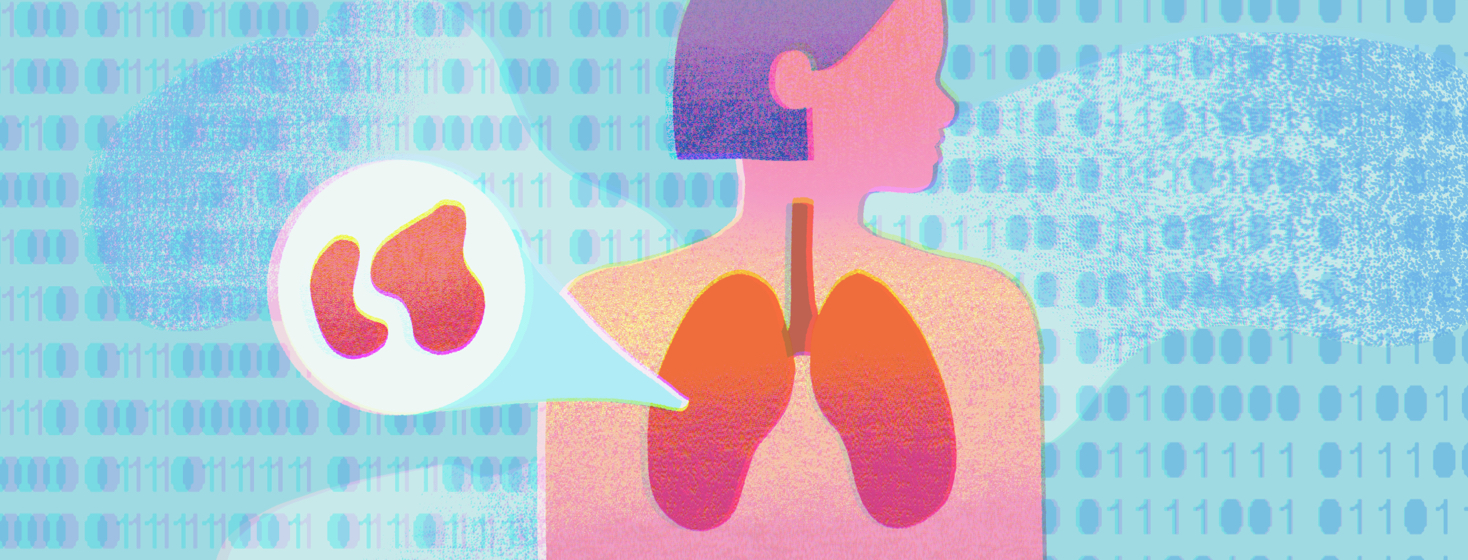Using Artificial Intelligence in Lung Cancer Screening
Lung cancer is the leading cause of cancer-related death worldwide. This is partly because lung cancer is often found in later stages. It also can look like many other illnesses on imaging tests such as X-rays and CT scans. And there is a shortage of radiologists – using only their human eyes – to look at these imaging tests.1,2
All of this can make it hard for doctors to diagnose lung cancer correctly and treat it successfully. But there may be a way of using artificial intelligence to find lung cancer earlier using current imaging technology.1,2
Teaching computers to find lung cancer
Doctors wondered if there was a way to detect lung cancer on scans earlier. They knew that the earlier that lung cancer is found and treated, the better the long-term outcome. So, scientists worldwide have been working to teach computers how to find lung cancer.1,2
Scientists at Google, Northwestern University, the University of Oxford, and other institutions have been using artificial intelligence (AI) to help detect cancer on imaging scans. They have been showing computer programs images of lung cancer scans and teaching these programs to recognize cancer.1,2
Deep learning
This process is known as deep learning. Deep learning is a form of AI that teaches machines to recognize complex ideas. It uses a series of processes called algorithms to teach the program to find patterns and solve problems.1,2
Usually, computers are programmed to look for certain predefined features of objects like tumors. But by using deep learning, researchers teach computers to figure out what a tumor looks like on a scan. Over time, the computers learn exactly what might indicate cancer on a scan.2
Featured Forum
View all responsesCan computers find cancer better than doctors can?
The scientists showed the AI programs thousands of images of lung cancer. These included images of cancer that doctors had misdiagnosed, including scans that looked like other lung illnesses or even normal tissue. The programs then began to find lung cancer on old scans.2
One team reported that their system found 94 percent of early-stage lung cancers. Another team said their computers found 95 percent of cases where the cancer was still a "tiny speck."
The computers were recognizing cancer at a much higher rate than the doctors were.2
Other uses for artificial intelligence with lung cancer
Doctors think AI could have many other uses in lung cancer screening, diagnosis and treatment. AI may help doctors diagnose the genetic changes involved in cancer.2
AI may also help doctors decide how to treat people with lung cancer after surgery. Additionally, it may help them determine whether someone is a good candidate for radiation treatment. Finally, it may help them decide which medicines would best treat a person’s lung cancer.1
The future of AI in cancer diagnosis and treatment
These AI program developments are an accurate way to use existing technology to find lung cancer earlier and get treatment started sooner. Both of these increase survival rates. Doctors will still be needed to make sense of the computers' findings, but people with cancer will benefit from their partnership with computers.1,2
Approved programs
Some AI programs are approved by the US Food and Drug Administration (FDA) to help doctors detect cancer. Several programs are still being developed and used only in studies to diagnose cancer.1
For example, a new approach is being developed at the University of Houston to help reduce diagnostic errors. Engineers are developing a framework that will allow AI to work with human radiologists to find tumors.3,4
Instead of focusing only on AI prediction models, this new system uses human gaze-assisted reinforcement learning. In simpler terms, it teaches AI how to look for the information it needs in a complex environment. This is much like how humans observe the world every day.3,4
These developments are helping to move the needle toward earlier diagnosis. But some experts have doubts.
It will take time for AI to take on a major role
There are a few reasons why AI is not yet widely adopted in cancer treatment. For one, doctors are still very wary of using AI to treat subjects. There are privacy concerns with technology. Many hospitals need a lot of computer power or adequate personnel to run these AI programs. Ff these programs were adopted, doctors would also have to learn a new skill set. Hopefully, these barriers to AI adoption can be overcome in the future.2,5

Join the conversation